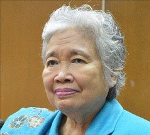Published on Mon, 2016-07-18 11:42
Inequality has been center stage at the United Nations headquarters in recent days, as government officials, development experts and civil society representatives gathered for the first meeting of the High-Level Political Forum on Sustainable Development (HLPF) since the Sustainable Development Goals (SDGs) were agreed. The HLPF is the main platform for the follow-up and review of the 2030 Agenda for Sustainable Development. The theme of this year’s HLPF – and one of the most potentially transformative elements of the Agenda – is the critical commitment to “leave no one behind.” |
Published on Mon, 2016-07-18 00:00
Much is made of the public-private partnership (PPP). This is where the public and private sectors combine to produce outcomes which are favorable to the nation. In practice, this has meant Luzon-based transportation infrastructure projects. Visayas and Mindanao have been largely left out. President Duterte will change this. Which is partly why a whopping 62 percent of Mindanaoans voted for him. In a presidential contest where there were four highly supported candidates, this is a remarkable mandate. |
Published on Thu, 2016-07-14 23:29
“Leave no one behind” has become a central rallying cry around the UN’s Sustainable Development Goals, but more needs to be done for it to be put into practice, said civil society during a review conference of progress made on the Post-2030 agenda here this week. Unlike the UN’s Millennium Development Goals (MDGs) which failed to address structural inequality, ecological sustainability, and the responsibilities of the global North, the 2030 Agenda acknowledges the “enormous disparities of opportunity, wealth, and power,” as immense challenges to sustainable development – a first for an intergovernmental document. |
Published on Thu, 2016-07-14 22:02
Independent monitoring and review of the 2030 Agenda and the identification of structural obstacles are key factors for the success of the Sustainable Development Goals, argued Roberto Bissio, coordinator of Social Watch, at the launch of the 2016 Spotlight Report at the United Nations. The Spotlight report 2016 is published by the Reflection Group on Sustainable Development, an alliance of Social Watch, Third World Network, ANND and DAWN. The report includes contributions on each of the Sustainable Development Goals (SDGs) by civil society networks and experts and national reports from forty countries. Areli Sandoval, from Equipo Pueblo (Mexico), Juerg Staudenmann from Alliance Sud (Switzerland), Mahinour El Badrawi, from the Egyptian Center for Economic and Social Rights and Maria Victoria Raquiza, from Social Watch Philippines presented the conclusions from their national reports. |
Published on Thu, 2016-07-14 20:59
The Czech Social Watch report launched last week in Prague recognizes achievements by its government in social policies, but also criticizes lack of progress in environmental issues. The Czech Republic supports peace and the Sustainable Development Goals, but on the other hand it stimulates arm exports and blocks developing country participation in international fora on tax havens and illicit financial flows. Although the Government generally supports the SGDs and the engagement of non-state actors in the planning process, some governmental departments fail, or in some cases, even refuse to take seriously the 2030 Agenda for Sustainable Development. |
SUSCRIBE TO OUR NEWSLETTER







